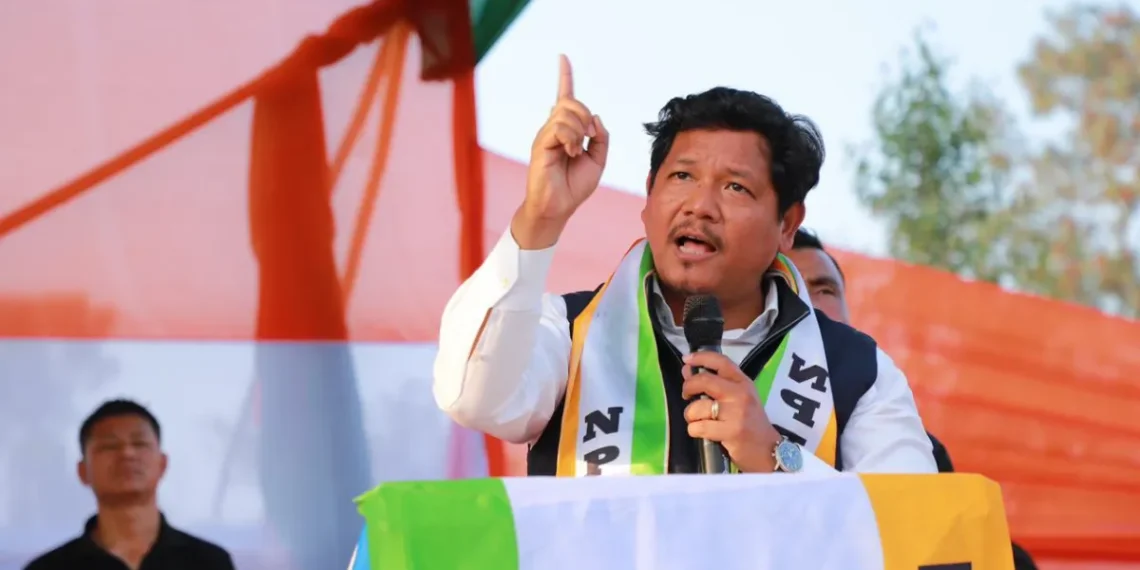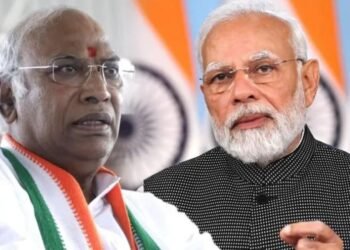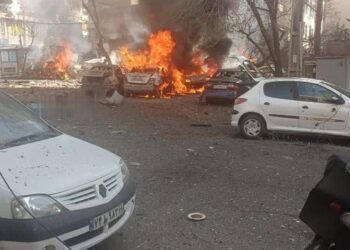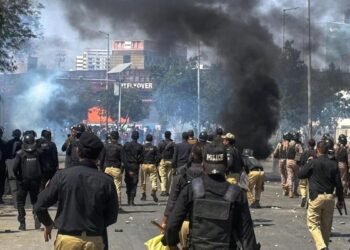Union Home Minister Amit Shah convened a high-level meeting to assess the security situation in Manipur, following reports of renewed violence and protests. This comes after a fresh round of unrest in the Valley districts, sparked by the killing of six people whose bodies were discovered in Jiribam.
BY PC Bureau
The Conrad Sangma-led National People’s Party (NPP) withdrew its support to the BJP-led government in Manipur on Sunday, citing concerns over the escalating law and order situation in the state.
In an official letter to BJP national president JP Nadda, the NPP expressed its dissatisfaction with Chief Minister N. Biren Singh’s handling of the ethnic violence, claiming the state government had failed to restore normalcy and prevent further loss of innocent lives. The party’s decision to withdraw its support from the government took effect immediately.
The (NPP) decision to withdraw support from the BJP-led government in Manipur reveals deepening discontent with the ongoing ethnic violence in the state. Despite a relatively stable majority in the Manipur Assembly, the NPP’s move signals a fracture in the BJP’s alliances, raising questions about the effectiveness of Chief Minister N. Biren Singh’s leadership.
The withdrawal underscores the mounting pressure on the Modi government to take bold steps to restore peace and regain control over a rapidly deteriorating security situation. This political maneuver reflects the broader challenges the BJP faces in managing a volatile state where public dissatisfaction is boiling over.
Despite this setback, the BJP government in Manipur is likely to remain stable. The BJP holds a comfortable majority in the 60-member Assembly, with 37 seats of its own, including five from the Janata Dal (United), which joined the BJP in late 2022. The party also enjoys the backing of the Naga People’s Front (NPF), as well as support from some Independent legislators.
Meanwhile, Union Home Minister Amit Shah reviewed the security situation in Manipur today amid fresh cases of violence. Reports suggest he will hold a more detailed meeting tomorrow with senior officials to discuss the ongoing crisis. The violence has prompted the imposition of a curfew in parts of Imphal, as well as the suspension of internet services across seven districts. The unrest follows the discovery of six bodies in Jiribam, which were reportedly the victims of abduction by Kuki militants.
Earlier, Shah cancelled his scheduled election rallies in Maharashtra and returned to Delhi to oversee the Manipur situation. This decision comes amid mounting criticism from the opposition, particularly the Congress, regarding the central government’s handling of the Manipur crisis.
The recent surge in violence has deepened ethnic divisions between the Meitei and Kuki communities, with incidents of arson, clashes, and the discovery of bodies intensifying tensions. The Congress and other opposition parties have criticized the BJP-led central government for failing to manage the crisis effectively. These developments put additional pressure on the government to take decisive action to quell unrest and restore order.
The centre recently rushed 20 battalions of [para military forcs and seemded deermined not to let the styate slide into further chaos.
The unrest in Manipur intensified over the weekend. Irate mobs set fire to the residences of several political figures, including BJP legislators—one of whom is a senior minister—and a Congress MLA. Security forces intervened to thwart protesters attempting to storm Chief Minister N. Biren Singh’s ancestral home. Singh was not present at the time.
Protesters have been galvanized by the discovery of six hostage bodies, including an infant, near the Assam-Manipur border. This tragic revelation has reignited ethnic tensions between the Meitei and Kuki communities, with the violence plunging Manipur into a deeper security crisis. Properties belonging to BJP MLA R.K. Imo, Health Minister Sapam Ranjan, and others were targeted, with mobs torching vehicles and vandalizing offices. Ranjan assured protesters that the killings would be addressed at a cabinet meeting, even offering to resign if the government failed to act.
Curfews and Internet Shutdowns
To curb the unrest, the government imposed indefinite curfews in five districts, including Imphal East and West, and suspended internet services. These measures aim to prevent the spread of inflammatory content as protests continue to escalate.
Ethnic and Political Tensions
The recent surge in violence follows a gunfight that left 10 Kuki militants dead and the gruesome killing of a 31-year-old woman from the Hmar group in Jiribam. The Coordinating Committee on Manipur Integrity (COCOMI), predominantly representing the Meitei community, has demanded military action against Kuki militants and criticized the reimposition of the Armed Forces Special Powers Act (AFSPA) in certain areas. COCOMI spokesperson Khuraijam Athouba accused the government of neglecting Meitei interests and raised concerns over external involvement in the conflict, pointing to mercenaries and proxy armies from Myanmar.
Meanwhile, Mizoram’s student body, Mizo Zirlai Pawl, called on the central government to ensure the safety of Mizo students in Manipur. Protests by thousands of Naga women also erupted, opposing AFSPA and other policies they view as dividing their community across the Indo-Myanmar border.
Government and Civil Society Responses
Amid the unrest, COCOMI plans to submit a memorandum to Prime Minister Narendra Modi demanding the rescue of abducted civilians and an explanation of the government’s actions. Naga leaders, including the Naga People’s Movement for Human Rights (NPMHR), have voiced concerns over militarization in their territories, accusing the central government of atrocities and advocating for peace without repression.
The crisis in Manipur underscores the deep-seated ethnic, political, and security challenges plaguing the region. As Home Minister Shah takes charge, all eyes are on the central government’s efforts to de-escalate tensions and address the grievances of its diverse communities.
At the same time, thousands of Tangkhul women, of Naga origin, took part in a rally against the imposition of AFSPA, the revocation of the Free Movement Regime (FMR), and the border fencing project encroaching on Naga territory at Urukhul, 80 kms from capital Imphal.
The Tangkhul are part of the larger Naga ethnic group, alongside tribes such as the Ao, Angami, and Sema from Nagaland, as well as other Naga tribes in Manipur.













